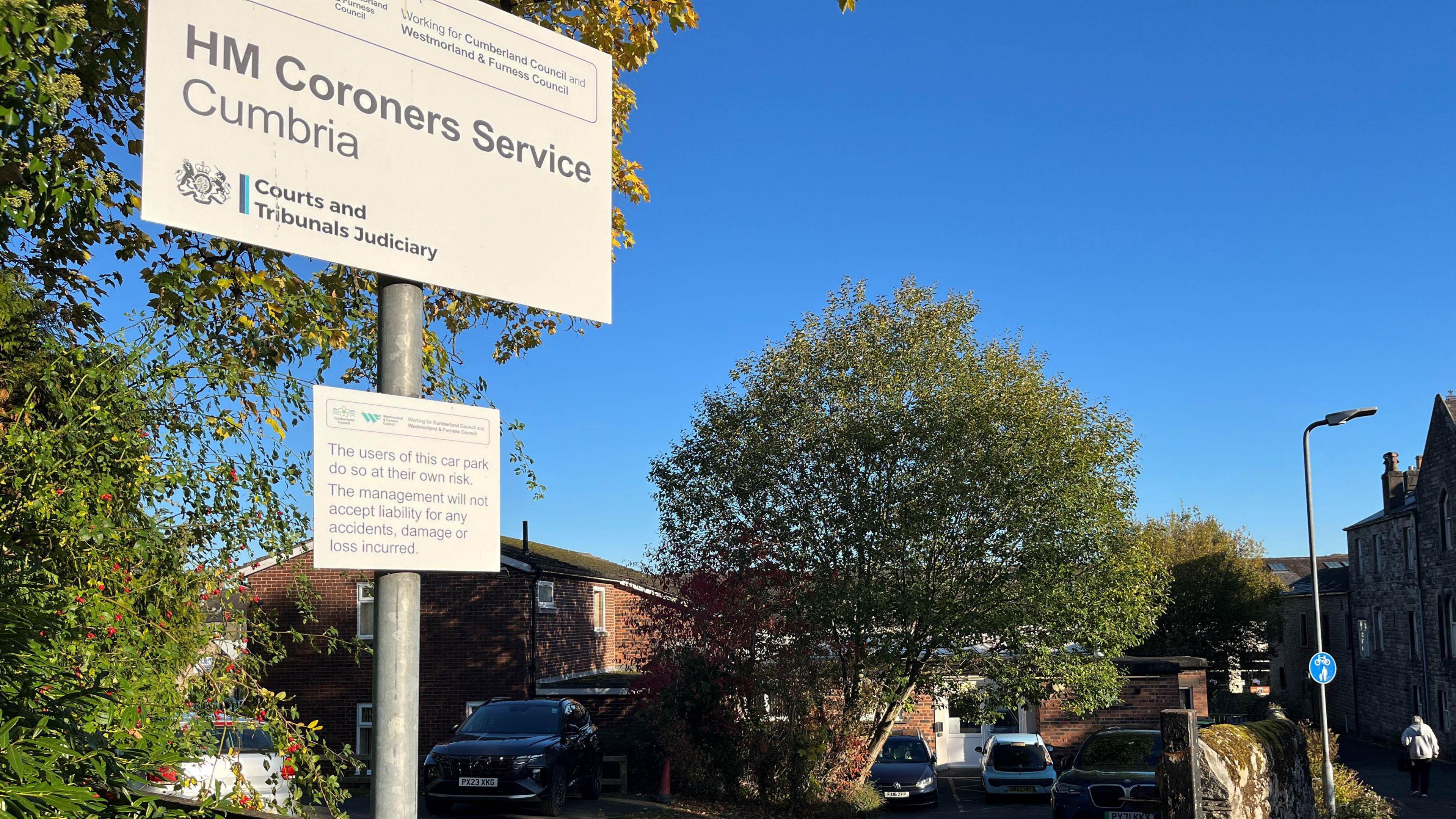Record of drugs given to man who died criticised

Assistant coroner Robert Cohen said the issues that emerged at the inquest were "depressingly familiar"
- Published
A hospital trust has been criticised for its poor drug record-keeping in the case of a man who later died.
William Henderson, 53, was admitted to the Cumberland Infirmary in Carlisle, after suffering an ischemic stroke on 24 March 2023 and died three days later.
An inquest held in Cockermouth heard Mr Henderson's family questioned the accuracy of his medication record.
Assistant Coroner Robert Cohen recorded a narrative verdict and said he died of a stroke. The North Cumbria Integrated Care NHS Foundation Trust (NCIC) said staff often operated under "stressful" conditions.
Mr Cohen said it had been "necessary" to have three hearings before he could reach his conclusion because of problems with "missing relevant evidence" and witness statements.
He said he did not believe this was done "intentionally" to mislead the court, but he could understand why Mr Henderson's family had a "lack of faith" in the accuracy of the evidence.
Choked during a test
In hospital Mr Henderson, of Gretna, in Dumfries and Galloway, was given thrombolytic medication to dissolve a clot.
He then suffered a bleed in the brain, a known side effect of the medication, Mr Cohen said.
Initially he was given hypertension medication intravenously to control his blood pressure. This was changed to an oral medication the day after his admission.
The hearing heard that Mr Henderson's family questioned whether he was able to take oral medication, after he choked during a test to see if he could swallow.
His medication was changed back to being administered intravenously after a doctor's review on 26 March.
Drug charts showed an illegible "squiggly line" for a signature, meaning it was not possible to determine who had given the drug.
Vital documents
Mr Cohen said issues with drug charts were "depressingly familiar".
"I record the court's displeasure at the manner in which the drug chart has been filled," he said.
"They are absolutely vital documents and I know coroners in the country and in Cumbria have raised concerns about this before."
However, he said he did not believe a Prevention of Future Deaths report was necessary.
A spokesman for NCIC said the trust did not agree with the family's suggestion the record had been fabricated.
He also said the coroner's comments would be given "careful consideration".
Follow BBC Cumbria on X, external, Facebook, external, Nextdoor and Instagram, external. Send your story ideas to northeastandcumbria@bbc.co.uk.